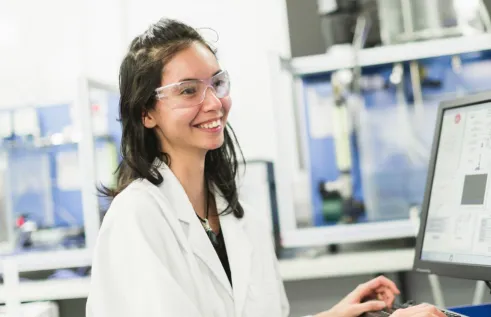Engineers are professional problem-solvers. Our location in Australia’s Top End, gateway to Asia, is teeming with real-world challenges and opportunities.
At CDU, you'll be encouraged to think independently and find creative and logical solutions in your chosen discipline.
Specialisations
Civil and structural engineering
You can specialise in civil and structural engineering in the following courses:
- Associate Degree of Engineering
- Bachelor of Engineering (Honours)
- Bachelor of Engineering Science
- Bachelor of Engineering Science/Master of Engineering
- Master of Engineering.
Electrical and electronics engineering
Electrical and Electronics Engineering is a rapidly developing field that has a significant impact on our daily lives. Electronics is an essential component for Internet of Things (IoT), consumer electronics such as phones and computing devices, as well as industrial control systems. Electrical systems are changing the way we use energy and resources and will be essential for reducing our carbon footprint in the future. This includes renewable energy, smart power generation, transmission and storage systems, electric cars and transport systems and novel consumer products.
You will learn how to design, manufacture, test, operate and maintain electrical and electronics systems throughout the course.
As a graduate, you will be sought after in industries such as communication, defence, mining and utilities. Opportunities also exist to continue with research into the design of solar cells, energy transmission and energy storage, video transmission and compression and photonics.
You can specialise in electrical and electronics engineering in the following courses:
- Associate Degree of Engineering
- Bachelor of Engineering (Honours)
- Bachelor of Engineering Science
- Bachelor of Engineering Science/Master of Engineering
- Master of Engineering.
Mechanical engineering
Mechanical engineering is perhaps the broadest and most diverse of engineering disciplines.
It develops creative thinking that will allow you to design products and systems of the future, overcome constraints, and achieve design goals. You will learn about materials, solid and fluid mechanics, thermodynamics, heat transfer, control, instrumentation, design, and manufacturing.
You can specialise in electrical and electronics engineering in the following courses:
- Associate Degree of Engineering
- Bachelor of Engineering (Honours)
- Bachelor of Engineering Science
- Bachelor of Engineering Science/Master of Engineering
- Master of Engineering.

Sustainability, socialising and studying abroad: Shannon’s story
As an NT local, Shannon always had her sights set on CDU for when she finished Year 12. She’s now in her fourth year of studying a Bachelor of Engineering/Master of Engineering (Civil & structural) at the Casuarina campus in Darwin.
Read more